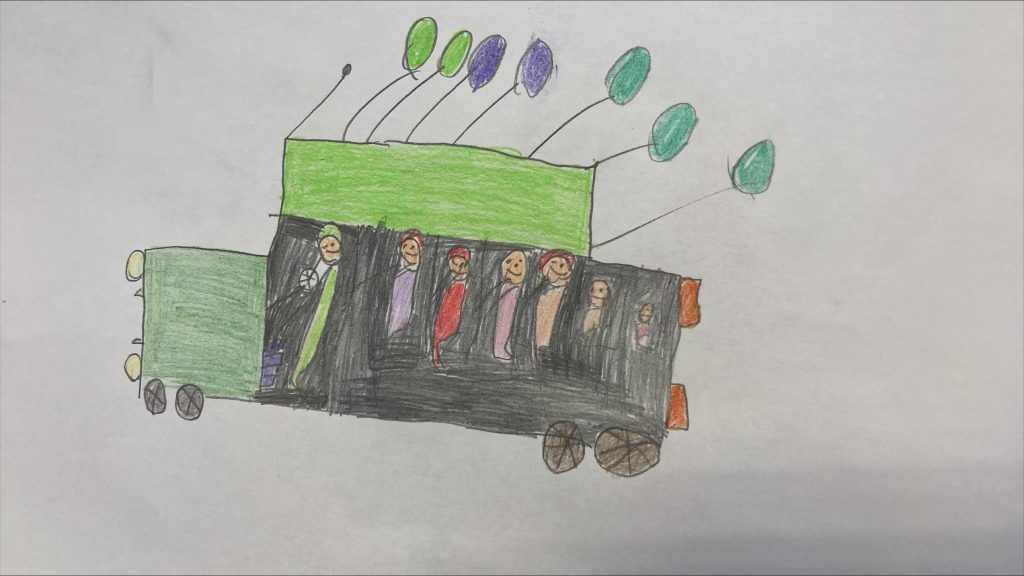Beyond the battlefield: the mental struggles of refugee children
2024-06-26
Sorrow and pervasive fear. Similar feelings must have stirred in the Transcarpathian refugees as they closed the doors of their homes and set off into the unknown. One child, however, does not know what is happening. All he sees is that his family is falling apart, that he will never see his friends again and that everything will be different from that moment on.
Transcarpathian refugee children bear lifelong scars
The refugee young people living in the Refugee Centre are more than 2 years in a state of uncertainty which makes them more vulnerable to mental and emotional stress.
The home that was once the meant security for these children, now only in their memories. They lost a piece of their family along with their home. They also had to say goodbye to their grandparents, friends and little ones for an indefinite period. Think about it, that goodbye hug was probably the last the children got from their grandparents.
They also had to say goodbye to their grandparents, friends and little ones for an indefinite period. Think about it, that goodbye hug was probably the last the children got from their grandparents. symptoms of post-traumatic stress disorder have also signed up. For example, anxiety, difficulty sleeping or concentrating, sluggishness or agitation, moodiness, melancholy, or muscle tension.
They communicate without words
Their works reveal a motif of transience. They typically do not draw soil under the houses. Some children have drawn water as soil, which may also symbolise instability.
In one of the psychology sessions, Josika drew a car flying through the air, flown by balloons. Her whole family rode in this special vehicle. Her relatives living here and her grandmother, who lives in Transcarpathia and who she misses very much. While drawing, the little boy added that he didn't know where the car was going, he just hoped it wouldn't crash.

"Since they rarely travel by car, in this case, the artwork is more symbolic of the very precarious situation of the boy who drew it. The direction in which the car is travelling is also extremely revealing, as it is flying backwards. It is a symbol of looking back to the past, when everything was more certain," said Hanna Péter Kissné, psychologist at Dorcas Ministries.
Light at the end of the tunnel
What gives them strength is the care and feedback from the community, family, friends and the people who work with them. The refugees from Transcarpathia living in the Dorcas Refugee Center are fortunate to have relatives who have come to us, so the support of the community eases their uncertainty, as they do not have to drift alone in a foreign country. In addition, the stability of daily education, time with friends, teachers and development for the children is an immeasurable help.
Living in a strange place, in a strange country, with strange customs can make them feel less confident, but it is a great help for them to have the opportunity to participate in mental health and psychological sessions.
The Refugee Mission, more than a temporary shelter for people in distress. It is crucial that we also focus on mental health support, especially for children. With the UNICEF Regional Office for the Ukrainian Refugee Programme in Hungary our aim is to help young refugees from Transcarpathia living in the Refugee Centre to process their traumas. We need your help in this mission! Support our project with your online donation!
The daily subsistence allowance for a refugee is 13000 HUF.
